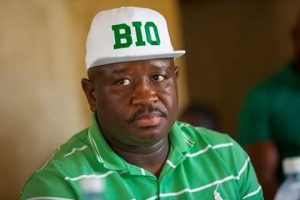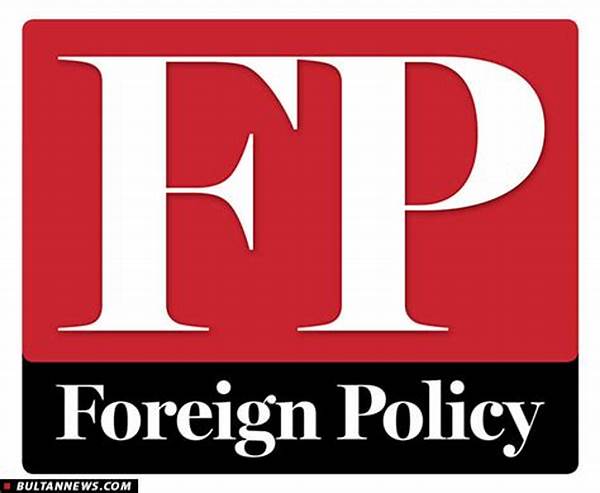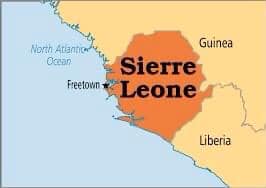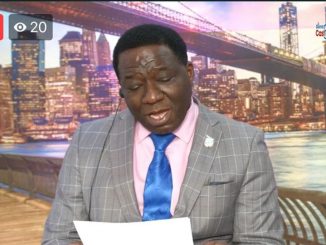
The authoritative FOREIGN POLICY Magazine has disclosed that African human rights abusers and war crimes suspects are among African leaders invited to this year’s U.S/African Leadership Summit to be held in Washington DC from December 12-December 15 this year–And President Joe Biden is taking a beating for it.
According to an official of the U.S. State Department who spoke to COCORIOKO anonymously, the invited guests include even Sierra Leone’s President Maada Bio , who has committed grave and egregious human rights abuses since he became President in 2018 , for which massive demonstrations have been held by citizens at home and abroad, and the President has been indicted in the U.S. State Department Annual Country Reports on Human Rights.
Biden’s Africa Summit Has Democracy on the Agenda, But Not the Invite List: Autocrats among those invited to summit in Washington.
The Biden administration is preparing to host dozens of African leaders in Washington for a summit next month, and it is already catching flak for who is invited and who isn’t.
Among those who have made the invite list for the upcoming U.S.-Africa Leaders Summit, according to multiple current and former officials and congressional aides familiar with the matter: at least three heads of state accused of war crimes or crimes against humanity, the foreign minister of an autocratic country whose security services stalked and harassed senior U.S. congressional staffers earlier this year, and top officials from a military junta that took power last year.
The U.S.-Africa Leaders Summit, scheduled for Dec. 13-15, is one of President Joe Biden’s top foreign-policy priorities in the coming months. It is the first opportunity for his administration to showcase how it views the future of U.S.-Africa relations on its home turf amid increased geopolitical tension with Russia and China and efforts to reset U.S.-Africa relations after the Trump era. But extending invites to autocrats and leaders with checkered rights records has opened the administration to criticism from lawmakers and human rights advocates and exposed contradictions in Biden’s pledges to revive democratic values and human rights abroad.
“When you partner with bad actors, nondemocratic leaders, you’re sending a clear message to the people in those countries … and giving these leaders more power and legitimacy on the world stage,” said Nicole Widdersheim of the Human Rights Watch advocacy organization.
The summit comes at a crucial juncture in U.S.-Africa relations as the continent seeks to recover from the global coronavirus pandemic and faces new economic and political pressures amid fallout from the war in Ukraine. “The war in Ukraine, but also the pandemic, all these tremendously important changes have created a new geopolitical order,” said Rama Yade, senior director for the Africa Center at the Atlantic Council, a Washington-based think tank. (Yade said the Atlantic Council is partnering with the Biden administration on some events during the summit.)
The Biden administration, current and former officials say, sought to strike a careful balance of inviting as many leaders as possible without opening it up to criticism on arbitrarily blocking some countries from attending. To do so, they used a simple metric: Top leaders from all countries in good standing with the African Union, the primary political bloc overseeing the continent, got an invite.
Administration officials wanted to avoid a diplomatic snafu similar to what the White House experienced earlier this year, when the leaders of Mexico, El Salvador, Honduras, and Guatemala refused to attend the U.S.-hosted Summit of the Americas, after Biden refused to send invitations to three autocrats in the region. Those four countries sent lower-level representatives to the summit, but the ordeal exposed rifts in U.S. relations with Central American countries and overshadowed the summit’s main policy agenda.
For the Africa summit, the metric of who got an invitation and who didn’t means they could avoid that type of thorny political minefield. It also means that autocrats and leaders whose governments have been accused of war crimes now get a chance to come to Washington and potentially burnish their credentials on the world stage.
“It avoids any offense on the African side, but on the U.S. side it looks like a betrayal of our values and our policies,” said Cameron Hudson, a former U.S. diplomat and senior associate for the Africa Program at the Center for Strategic and International Studies think tank.
Three African leaders who have been invited run governments that stand accused of war crimes or crimes against humanity: Egyptian President Abdel Fattah el-Sisi, South Sudanese President Salva Kiir, and Ethiopian Prime Minister Abiy Ahmed.
William Ruto, the recently elected president of Kenya, is also expected to attend the summit in Washington. Ruto faced charges of crimes against humanity by the International Criminal Court (ICC) for his alleged role in fomenting a wave of violence following Kenya’s 2007 elections that led to the deaths of some 1,200 people. The ICC in 2016 dismissed his case for lack of evidence, but refused to acquit him.
Zimbabwean Foreign Minister Frederick Shava is also expected to come, officials and congressional aides said, despite Zimbabwe’s government overseeing a violent and sweeping crackdown on political dissent and being accused of dispatching its security services to stalk and harass U.S. congressional staffers during an official visit to the country earlier this year.
Due to a series of coups in West Africa in recent years, most coup leaders don’t have a ticket to come to Washington: Sudan, Mali, Burkina Faso, and Guinea have all been suspended from the AU and didn’t get an invite. But one coup leader apparently did.
Chad is still in good standing with the AU (at least on paper), despite Mahamat Déby taking power last year and deploying his military junta’s security forces to violently crack down on pro-democracy protests in recent weeks. Déby’s government got an invite, several current and former officials said.
In Ethiopia, Ahmed’s government has been waging a bloody conflict against rebels in the country’s northern Tigray region for two years. An estimated 500,000 have died in the conflict, and all sides have been accused of grave human rights violations and war crimes. Ethiopia and Tigrayan representatives signed a peace deal earlier this month to end the conflict, but U.S. officials worry the deal is fragile and at risk of collapsing, particularly if forces from neighboring Eritrea do not withdraw from the conflict zone.
Some experts were skeptical that inviting autocratic leaders in Africa to the upcoming summit in Washington would net the Biden administration any wins on the human rights front. They point to Egypt, where Sisi has continued a wave of political repression and crackdowns on dissent despite multiple face-to-face meetings with Biden where U.S. officials said the U.S. president pressed him on human rights issues.
“It seems that the Biden administration is following a policy from the top of engagement with any actor, good, bad, or otherwise,” Widdersheim said. “If we saw substantial changes from engaging with bad actors, like Sisi, maybe engaging with all these leaders would be useful. But we just don’t see these changes.”
Update, Nov. 21, 2022: This article was updated to include comments from a National Security Council spokesperson.





